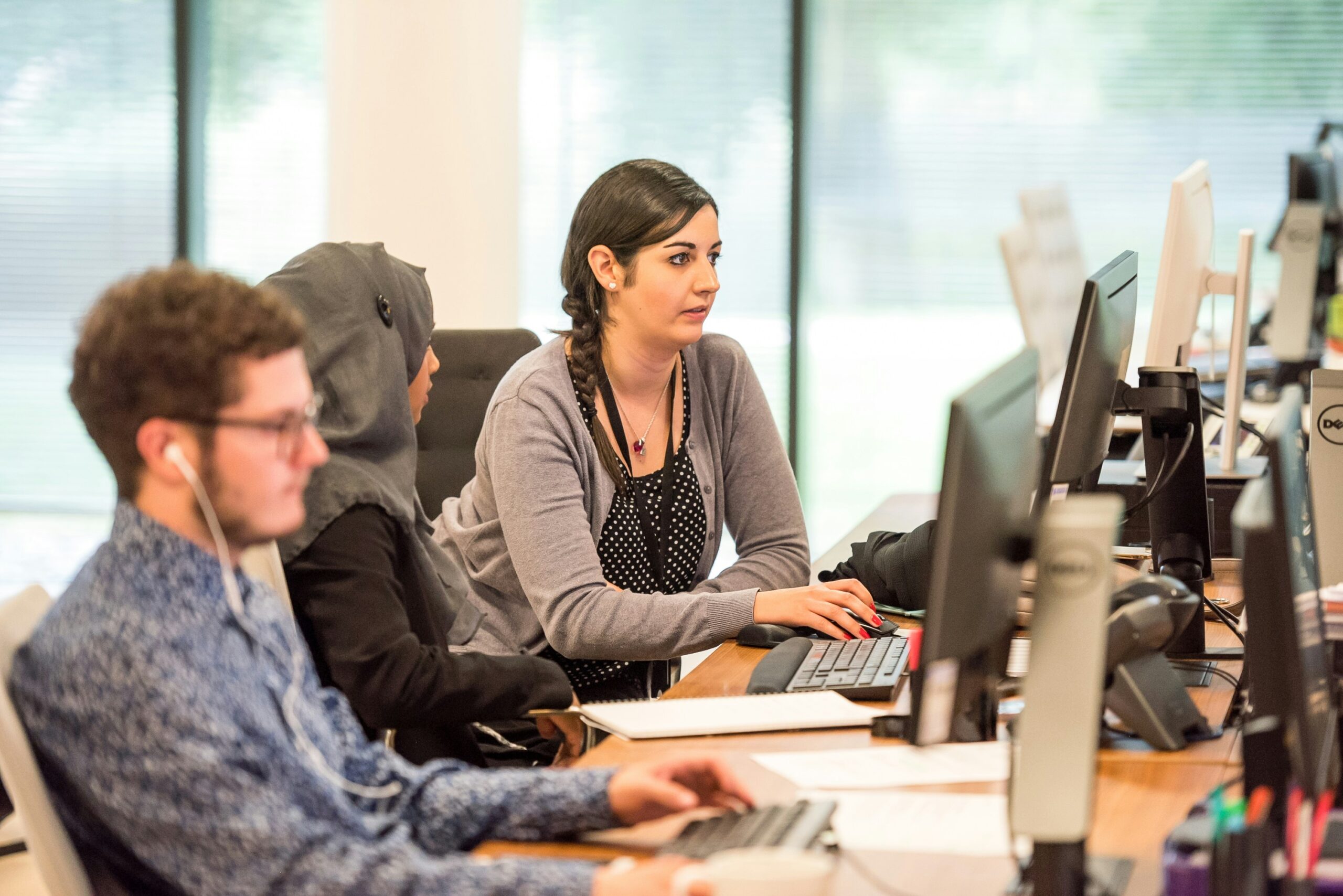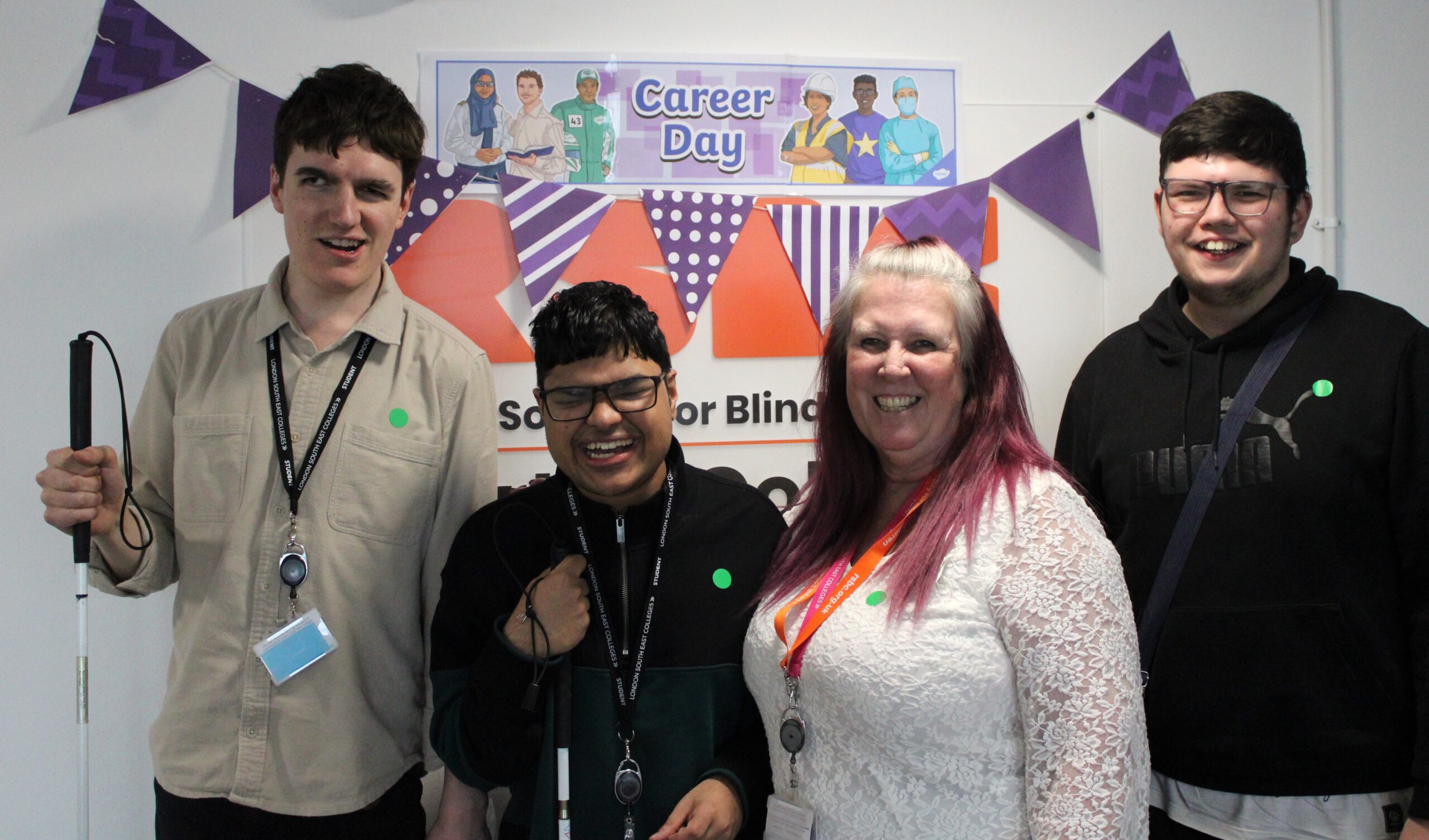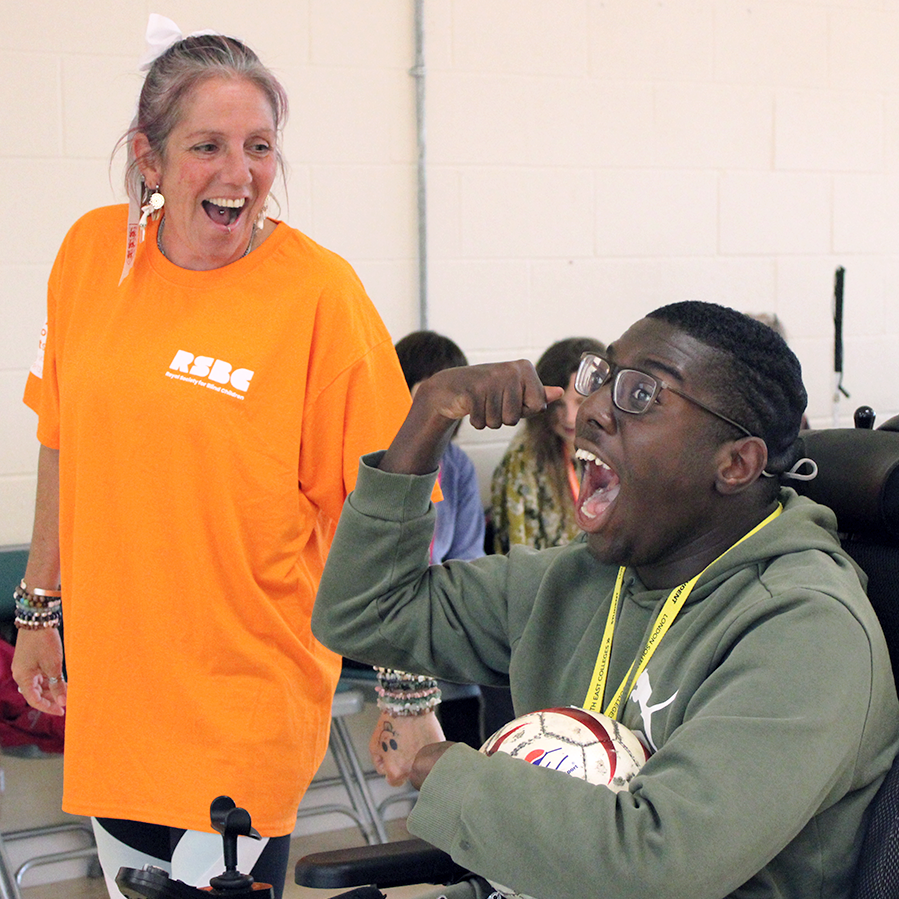Unlocking your wellbeing: some tips for better mental health

May 13, 2024
I’m Inez Bawa, a community support worker at RSBC. With a background in psychology and years of experience helping people navigate mental health challenges. I’m excited to share some tips on how you can improve your overall wellbeing. Whether you’re a blind or partially sighted child or young person, or just looking to take better care of your mental health, read on.
Understanding mental health
Mental health is all about our psychological, social, and emotional wellbeing. It’s not just about feeling happy all the time – it’s about how we handle stress, make decisions, and build meaningful relationships. Even though we all have our ups and downs, learning to cope with tough times is key to maintaining good mental health.
Ignoring your mental health can lead to issues like anxiety and depression. Anxiety can make you feel constantly worried, uneasy, or afraid, and it can impact your day-to-day living. It’s normal to feel a bit anxious before big events, but if those feelings start to take over, it’s time to take action.
The importance of mental health
Keeping your mental health in check is so important, as it can affect different areas of your life. For young people with vision impairment, mental health challenges can be especially common – studies have shown that they’re up to 5 times more likely to experience serious anxiety or depression compared to older adults. This is often because they haven’t yet learned to develop effective ways to cope.
Untreated anxiety can also increase the risk of developing depression, so it’s crucial to address mental health concerns early on. When your mental health suffers, it can start to impact your physical wellbeing, social life, and overall quality of life.
Improving your mental health
So, what can you do to boost your mental health?
Here are some ideas:
Become part of a supportive community
Managing vision impairment can be tough, so having a network of friends, family, and support groups can make a big difference. Check out the RSBC audio book club or sisterhood online sessions – they’re a great way to connect with other young people who understand what you’re going through.
Take care of your body
Caring for your physical health can have a really positive impact on your mental wellbeing. Try to get some exercise, aim for 7-9 hours of sleep per night, and focus on eating nutritious foods. Don’t forget to set aside time for self-care activities that you enjoy, too.
Celebrate your achievements
Recognise and celebrate your achievements, whether big or small! It’s often easier to be hard on ourselves rather than celebrate ourselves, but acknowledging your wins is crucial for mental growth, self-esteem, and personal development. You can do this by sharing your accomplishments with loved ones, treating yourself to something special like a takeaway meal or pamper session, and maintaining a digital log of your progress/achievements for you to reflect on. These are great ways to uplift your mood, stay motivated and appreciate just how far you’ve come!
Try to spend less time on social media
While it can be beneficial for building connections and staying informed, too much social media use can be harmful to mental health. Reduce feelings of stress, loneliness, isolation, depression and anxiety by turning off notifications, so you’re not bombarded with constant streams of information, finding new hobbies to replace time spent on social media, and prioritising face-to-face interactions with loved ones. Temporarily deleting social media apps can also be helpful, as well as using time limit apps to set dedicated timers when using social media. This can also improve our sleep, confidence, and overall focus. Remember, balance is key! 😊
Believe in yourself! Focus on what you can do, not what you can’t
Focusing on your strengths helps you highlight all the amazing things that make you YOU! When facing challenges, trust yourself to overcome them because you can, and you will. Remember that even successful people fail; it’s how you learn and grow from failure that matters.
Avoid negative self-talk – this will only make you feel sad/worse, as well as prevent you from taking up valuable opportunities. Surround yourself with inspiring people and those who want to help you achieve your best self, and fill your mind with positivity. This can include reading audiobooks, watching movies, or listening to podcasts.
Think about a better future and where you want to be to keep you motivated. And take action – trying something out is the best way to feel good and prove to yourself you can do it and inspire yourself to keep going. Most importantly, don’t let fear hold you back! Look back on past successes and track your accomplishments each day to remind yourself you can do it.
If you believe you can, you’ve got this! Keep believing! 🌟
Goal setting keeps you focused, organised, and motivated
Whether it’s small daily tasks in your routines such as getting out of bed or long-term aspirations like travelling abroad or getting a job, having goals gives you direction and something to work towards.
Goal setting can help you prioritise where to invest your time and effort, and help you avoid distractions (like a lot of social media use). Also, when you complete your goals, you can reward yourself for your achievements. Remember, even if you don’t tick off every goal you set you don’t have to feel ashamed for it, small victories count! So, start with a short list of two things to achieve each day, and when you feel ready you can add more as needed. Keep aiming high!
Don’t be afraid to ask for help when you need it
There’s no shame in reaching out for professional support when you need it. RSBC’s Families First program has amazing family practitioners who can provide practical guidance and a safe space to work through any mental health challenges you’re facing. They can help you develop routines to manage anxiety, depression, or anything else you’re struggling with.
Conclusion
Improving your mental health is an ongoing journey, but with the right strategies and support, you can do it. Remember, taking care of your mental wellbeing is just as important as your physical health. By making self-care a priority, building a strong support network, and seeking professional help when needed, you can navigate the ups and downs of life with more resilience and joy.
References
https://www.nhs.uk/mental-health/conditions/generalised-anxiety-disorder/overview/
https://www.who.int/news-room/fact-sheets/detail/mental-health-strengthening-our-response
You may also like

No categories March 28, 2025
Mother’s Day: our CEO shares her story
Happy Mother’s Day to everyone celebrating! In recognition of this special day, we sat down with our CEO, Julie, to hear about her relationship with her daughter, Saime, who is registered blind.

No categories March 20, 2025
What our young poets have to say this World Poetry Day
We were delighted to host two workshop sessions with renowned poet Dave Steele recently, and they certainly fired up the imaginations of the young people who attended! We’re pleased to be able to showcase the incredible talent that came out of the workshops in the beautiful poems written by those attending below.

No categories March 10, 2025
RSBC’s 5 key reforms to support young people into work
The government has just announced plans for a major shakeup of the welfare system, with £6bn of proposed cuts. Personal Independence Payments (PIP) are a lifeline for many people in our community. We understand the system needs reform, and that tough times can call for tough measures. But cutting back on PIP without making it […]

No categories March 7, 2025
Dorton College careers day: giving our students the confidence to shine
Too often, young people living with a vision impairment aren’t given the career opportunities they deserve. That’s why RSBC’s Dorton College hosted a careers day recently, inviting external speakers to inspire our students and help provide them with the tools they need to enter the world of work.

No categories March 5, 2025
Gary O’Donoghue’s win at the RTS Television Journalism Awards
Each year, the Royal Television Society hosts the Television Journalism Awards, celebrating the most prestigious change-makers in the British journalism space.

No categories March 4, 2025
Young people unlock their imagination at The Blind Poet’s workshops
Dave Steele, popularly known as The Blind Poet, is an internationally acclaimed and award-winning poet, author, speaker and singer – and an advocate for people with vision impairment.

No categories March 3, 2025
Helping young people be heard: RSBC’s Youth Voice Strategy Day
Recently, RSBC’s Youth Forum, Young Ambassadors and members of the RSBC team came together for a Youth Voice Strategy Day at our Life Without Limits Centre in London. The mission was simple: young people were tasked with coming up with their own objectives and create a roadmap for the future, which would help RSBC identify […]

No categories February 19, 2025
The Roundhouse becomes London’s first venue to use Navilens – with RSBC’s support
Iconic music and performing arts venue, the Roundhouse in Camden, has provided creative space that empowers people and communities since the 1960s. Its team is focused on unleashing the creative potential of young people and artists, giving them the opportunity to experiment, develop their skills, and be part of unforgettable moments with a lasting impact.

No categories February 14, 2025
A volunteer’s journey: Meet Joné
Joné has been volunteering with RSBC since August 2024. We spoke to her about why she wanted to become a volunteer and what her experience has been like so far.

No categories January 30, 2025
George and Nicola’s story
George is an energetic and confident eight-year-old boy who lives in a bustling household with his mum, Nicola, his dad, and his baby brother Ted. It’s a home that’s filled with love and resilience as the family faces the challenges and celebrates the triumphs that vision impairment brings.




